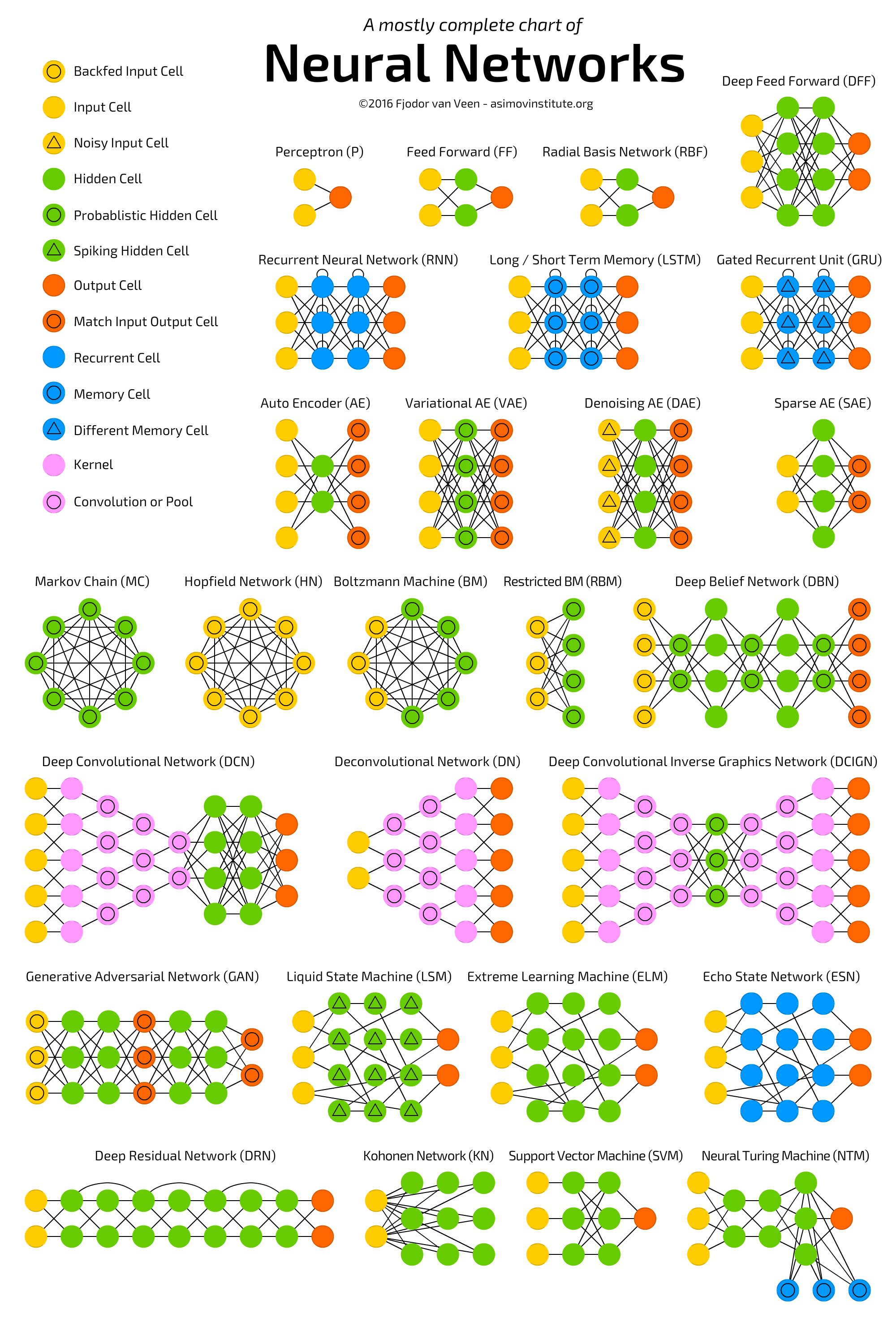is it necessary for Artificial NN to be fully connected or only fully connected NN is called ANN ?
-
3$\begingroup$ Any Neural Network which is not in a living being is artificial. A "fully connected" is a type of layer of an Artificial Neural Network, as well as convolutional layers, recurrent layers and so on... $\endgroup$– ignatiusCommented Apr 2, 2019 at 14:51
3 Answers
No, the word artificial in this context is only used to separate the neural networks we build from the natural/biological neural networks that they are loosely based on. But in the realm of data science you can basically use NN and ANN interchangeably and fully connected layers are irrelevant to the terms.
Here is a hierarchy that might make things clearer:
Neural Network
├── Natural Neural Network
| ├── Brain (Not fully connected)
| └── ...
└── Artificial Neural Network
├── Dense Neural Network (Fully connected)
├── Convolutional Neural Network (Not fully connected)
├── Recurrent Neural Network (Not fully connected)
└── ...
No, you can have fully connected or partial connected and will still be ANN. In Artificial Inteligence (AI) the term NN and ANN are used interchangeably and doesn't matter the topology. As a reference the chart below does provide part of topology follow under NN or correctly saying ANN umbrella.
Note:
NNandANNdiffer only when describe the source of the Neural Neurons so NN is definition/notation in biology field and ANN is the Artificial Intelligence field.
No, there are other kinds of networks such as :
- RNN (Cells are connected vertically across the same layer) https://en.wikipedia.org/wiki/Recurrent_neural_network
- CNN (Moves a rectangle across 2 D Input) https://en.wikipedia.org/wiki/Convolutional_neural_network

